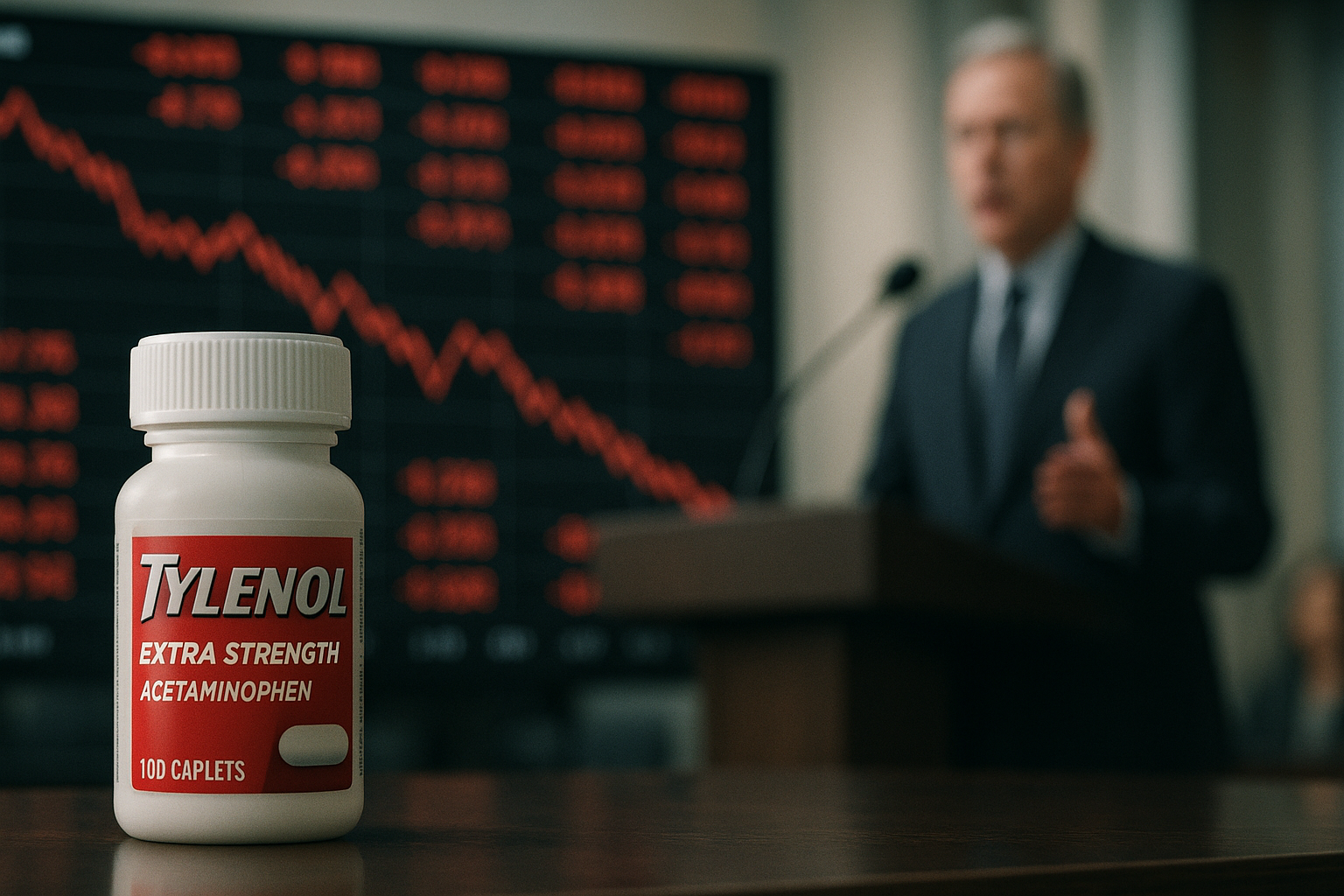J&J shares took a hit yesterday after word got out that independent presidential candidate Robert F. Kennedy Jr. plans to take aim at Tylenol, suggesting a link between acetaminophen and autism at an upcoming press conference. The healthcare giant watched nearly 3% of its value—billions of dollars—vanish faster than you can say "correlation isn't causation."
I've covered health scares for years, and there's something predictable yet fascinating about how this plays out every time. Markets, those strange creatures of collective psychology, seem to operate in two modes simultaneously: cool-headed calculation and jumpy paranoia. Yesterday definitely leaned toward the latter.
What we're seeing is what I've come to think of as the "celebrity scaremonger effect." It's a phenomenon where markets react not to scientific consensus but to the potential impact of a high-profile figure's health claims. Kennedy, with his well-documented history of vaccine skepticism, brings a ready-made audience to any health controversy he touches.
The scientific community has studied acetaminophen exhaustively. It's probably one of the most thoroughly researched medications on pharmacy shelves. Major health organizations consistently maintain it's safe when used as directed (though what medication isn't potentially dangerous when misused?).
But here's the thing—markets don't wait for peer review. They don't even wait for the actual press conference, apparently.
J&J shareholders aren't necessarily buying Kennedy's theories; they're anticipating how consumers might react to them. Social media can transform even fringe health concerns into trending topics within hours. Product managers at Tylenol are probably having emergency meetings right now, poor folks.
The tension between information efficiency and the power of narrative is what makes this so interesting. In theory, markets quickly incorporate all available information. In practice? A compelling story about children's health will outweigh statistical evidence almost every time.
J&J has navigated these waters before. Remember the 1982 Tylenol tampering crisis? That became the gold standard of corporate crisis response—the company pulled 31 million bottles from shelves, costing themselves $100 million, but ultimately strengthening consumer trust. I still remember my marketing professor using it as a case study back in college.
This situation is different, though. It's not about product tampering but alleged inherent risks in one of the most commonly used pain relievers in America. And J&J, having been through the legal wringer with talc and opioid litigation, knows better than most how health claims can morph into massive settlements.
(Side note: the legal angle might be what really spooked investors yesterday. Nothing makes shareholders more nervous than the prospect of class-action lawsuits, even remote ones.)
For investors watching this drama unfold, there are a couple takeaways. First, even century-old consumer health brands can be vulnerable to perception shifts in our social media age. Second, markets shoot first and ask questions later when it comes to product safety concerns—always have, probably always will.
Will this be a blip or something bigger? History suggests the former. Consumers typically return to trusted medications after the initial scare fades. But Kennedy isn't just any celebrity—he's a presidential candidate with a particular knack for health controversies.
So is this a buying opportunity or a warning sign? For long-term investors, these perception-driven dips often present decent entry points... but they also remind us that brand value exists in the fragile realm of public trust.
One thing's certain—J&J's communications team is in for a long week.
